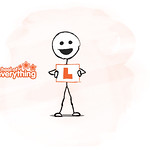If you want a learning organisation, you need an organisation of learners. But what makes a good learner?
Here's an article called "Seven Characteristics of Good Learners" by Maryellen Weimer, which addresses just that question.
According to Maryellen:
- Good learners are curious – They wonder about all sorts of things, often about things way beyond their areas of expertise. They love the discovery part of learning.
- Good learners pursue understanding diligently – A few things may come easily to learners but most knowledge arrives after effort, and good learners are willing to put in the time to seek and to find. Good learners are persistent. They don’t give up easily.
- Good learners recognise that a lot of learning isn’t fun – That doesn’t change how much they love learning. Learning is hard work sometimes, but when understanding finally comes, when they get it, when all the pieces fit together, that is one special thrill.
- Failure frightens good learners, but they know it’s beneficial – It’s a part of learning that offers special opportunities that aren’t there when success comes quickly and without failure. In the presence of repeated failure and seeming futility, good learners carry on, confident that they’ll figure it out.
- Good learners make knowledge their own – This is about making the new knowledge fit with what the learner already knows, not making it mean whatever the learner wants. Good learners change their knowledge structures in order to accommodate what they are learning.
- Good learners never run out of questions – There’s always more to know. Good learners are never satisfied with how much they know about anything. They are pulled around by questions—the ones they still can’t answer, or can only answer part way, or the ones without very good answers.
- Good learners share what they’ve learned – Good learners are teachers committed to sharing with others what they’ve learned. They write about it, and talk about it. Good learners can explain what they know in ways that make sense to others. They aren’t trapped by specialised language. They can translate, paraphrase, and find examples that make what they know meaningful to other learners. They are connected to the knowledge passed on to them and committed to leaving what they’ve learned with others.
An organisation of such people would be a powerful learning organisation indeed.





No comments:
Post a Comment